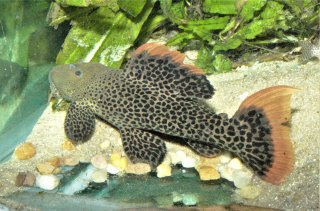
I purchased a 6" pleco from Liveaquaria.com, image above. It was given both L273 and LDA007 IDs in their description. My understanding is that LDA007 and L114 are the same. Which ID is correct?Thanks in advance!

It is, slowly, but it's not always as simple as you make out.Wonder why genetics are not being used for to aid species description?
Oh sure, the methods and the expertise exist, but the problem is cash. Sequencing this quantity of data is expensive.I recall that full genome sequencing has been done on Lake Victoria cichlids, addressing similar issues, including genetics of color variations. So there is know-how how to do this in fish.
Yup. It's hard to get money for straight up taxonomy.This research is driven in the context of evolution, and sponsored by academic funding agencies.
Yeah, there are only a small handful of examples now, but there will be more in future featuring DNA data. See a recent one here: https://doi.org/10.1371/journal.pone.0189789.The research papers I have seen on plecos seem to be more descriptive, traditional taxonomy, using morphological markers to separate/describe species.
I think you'd have to be the splitiest splitter of all time try and separate those two. Both fish come from the same river, and look the same.Jools wrote:
Thu Apr 12, 2018 7:28 pm
I don't know if LDA007 and L114 are the same species or not.
Jools
Depends if you’re a lumper or a splitter?